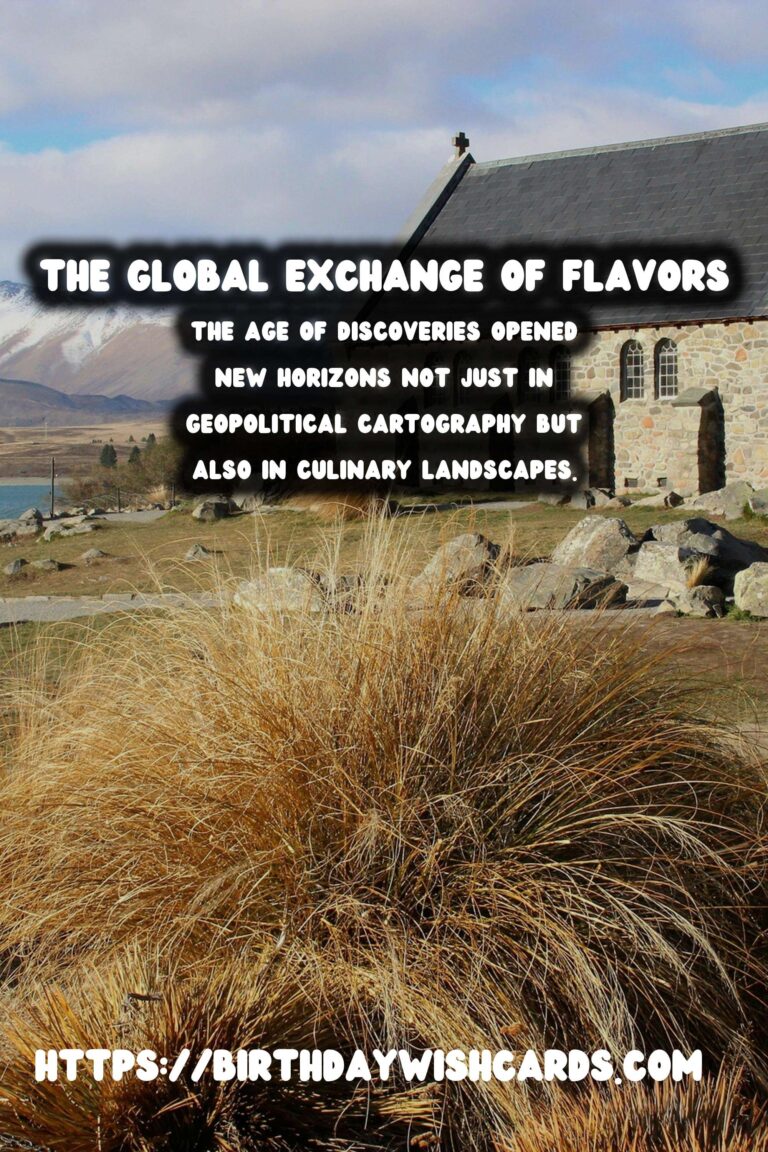
The Age of Discoveries, also known as the Age of Exploration, spanned the 15th to the 17th century and drastically reshaped the culinary world by connecting previously isolated continents. This era marked the global exchange of goods, including a plethora of foods that have become staples in diets worldwide.
European explorers embarked on perilous journeys across the seas, driven by the thirst for new trade routes and the allure of exotic spices and ingredients. This quest for culinary and economic expansion had enduring effects on societies globally.
The Birth of a Culinary Exchange
The Age of Discoveries opened new horizons not just in geopolitical cartography but also in culinary landscapes. European travelers encountered unique foods and brought them back home, sparking interest and integration into local cuisines.
Consider the introduction of the potato to Europe from the Andes; it’s hard to imagine Irish, British, or any European cuisine without it today. Similarly, the tomato traveled from the Americas to Italy, where it has now become central to Italian cooking.
Spices: The Currency of Discoveries
Spices were one of the main drivers of this era. Europeans sought nutmeg, cloves, black pepper, and cinnamon to preserve food, add flavor, and use in medicinal concoctions. The search for these “flavors of the East” led to the establishment of new trade routes and ultimately, globalization.
The Portuguese explorations resulted in a direct sea route to India, marking the beginning of spice dominance. In addition, the discovery of the New World brought chilies to Asia, forever altering their culinary practices.
Transformative New Ingredients
The Age of Discoveries introduced vital ingredients that significantly diversified global palates. Corn and cacao from the Americas traveled east, whilst wheat and sugarcane came west. The exchange of these goods fostered innovative food practices that blend new and traditional flavors.
While corn became essential in African and Asian agriculture, cacao developed into a valued luxury in Europe, evolving into the beloved chocolate we enjoy today.
Cultural Interactions and Fusion Cuisines
This period also birthed exciting culinary fusions. European, African, and Asian tastes and techniques merged, creating diverse dishes that would define cultural identities. For example, the culinary world in the Caribbean and Latin America spiced up through the African influence during the transatlantic slave trade. Jambalaya, a now-classic dish, exemplifies this melange of cultural flavors.
Furthermore, Indian and Portuguese cooking styles merged to create the fiery vindaloo, indicative of this culinary intermingling that is still savored worldwide.
The Dark Side of Culinary Transformation
Though transformative, these exchanges were not without their darker aspects. The demand for labor to cultivate foods like sugarcane and spices spurred the slave trade, intertwining cuisine with a history of suffering.
As the global appetite grew, indigenous populations suffered from exploitation and diseases, reshaping demographics and cultures.
Conclusion: A Lasting Culinary Legacy
The Age of Discoveries has left an indelible impact on the modern culinary world. From the spices that flavor our food to staple crops that form our basic diet, the era ushered in an unparalleled exchange of culinary goods that transcended borders.
Today, the legacy of those centuries of exchange continues to thrive in innovative and traditional dishes served around the globe, a testament to the dynamic and intertwined history of global cuisines.
The Age of Discoveries opened new horizons not just in geopolitical cartography but also in culinary landscapes. The demand for labor to cultivate foods like sugarcane and spices spurred the slave trade, intertwining cuisine with a history of suffering. 
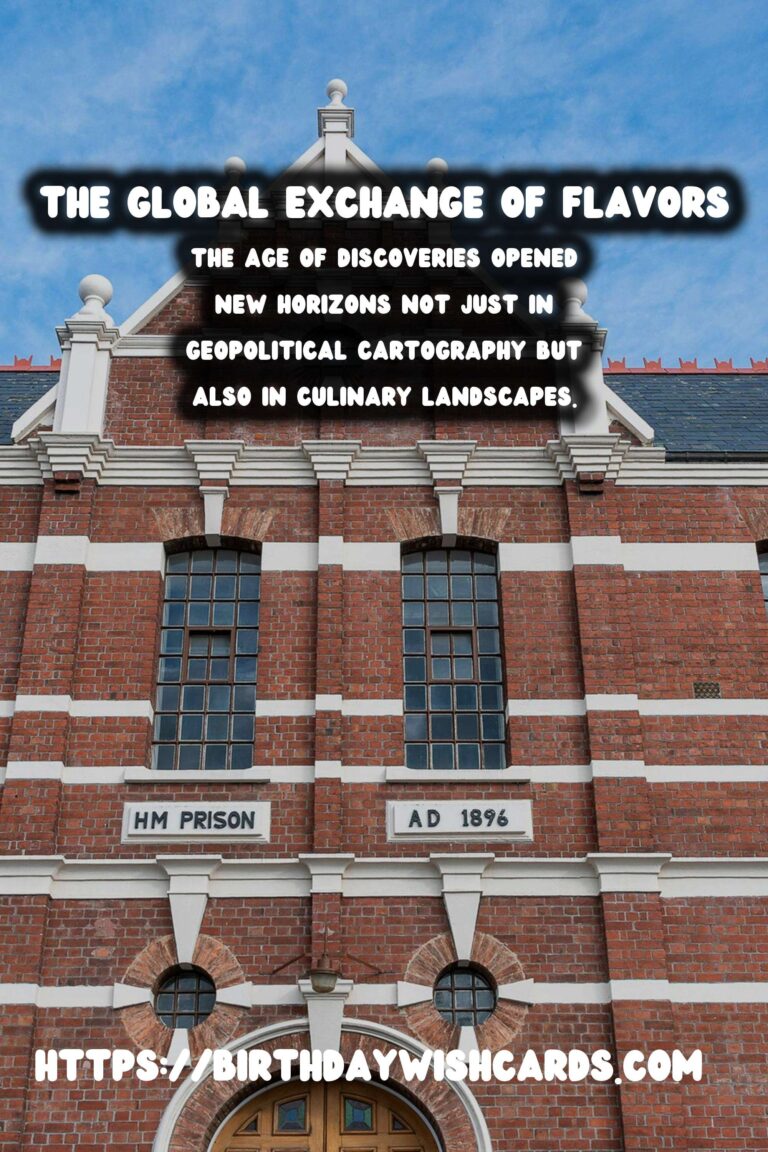
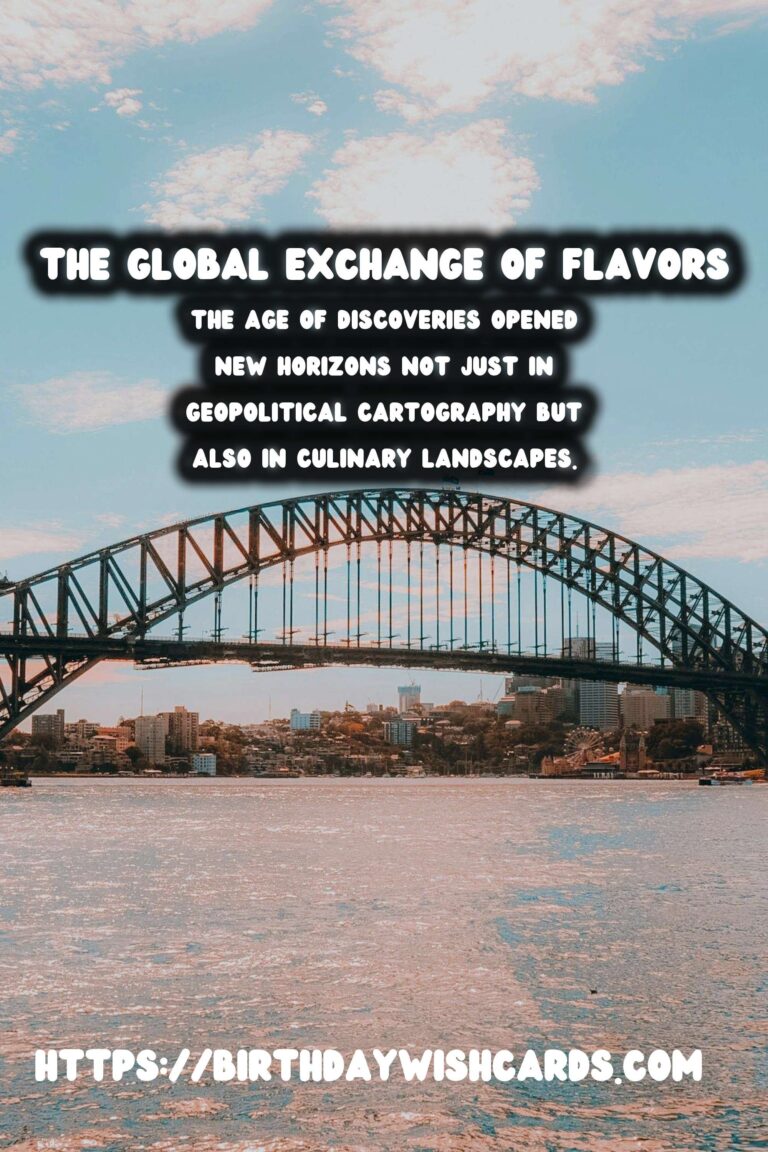
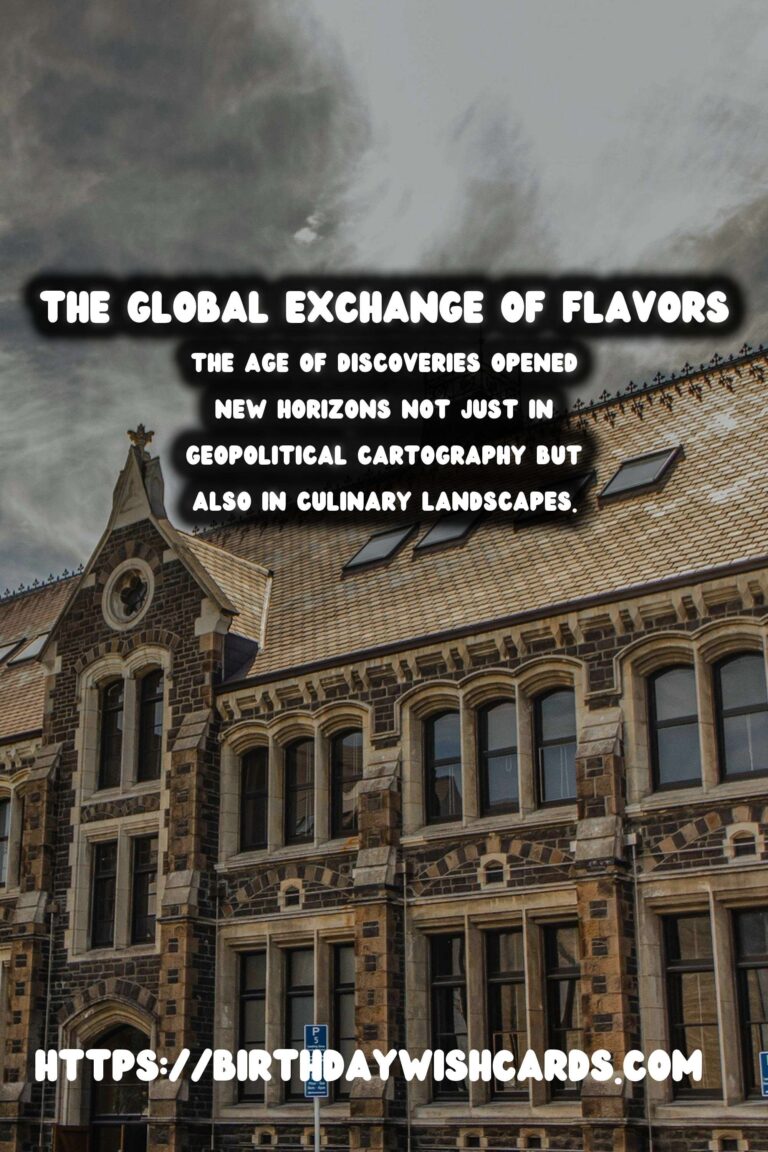
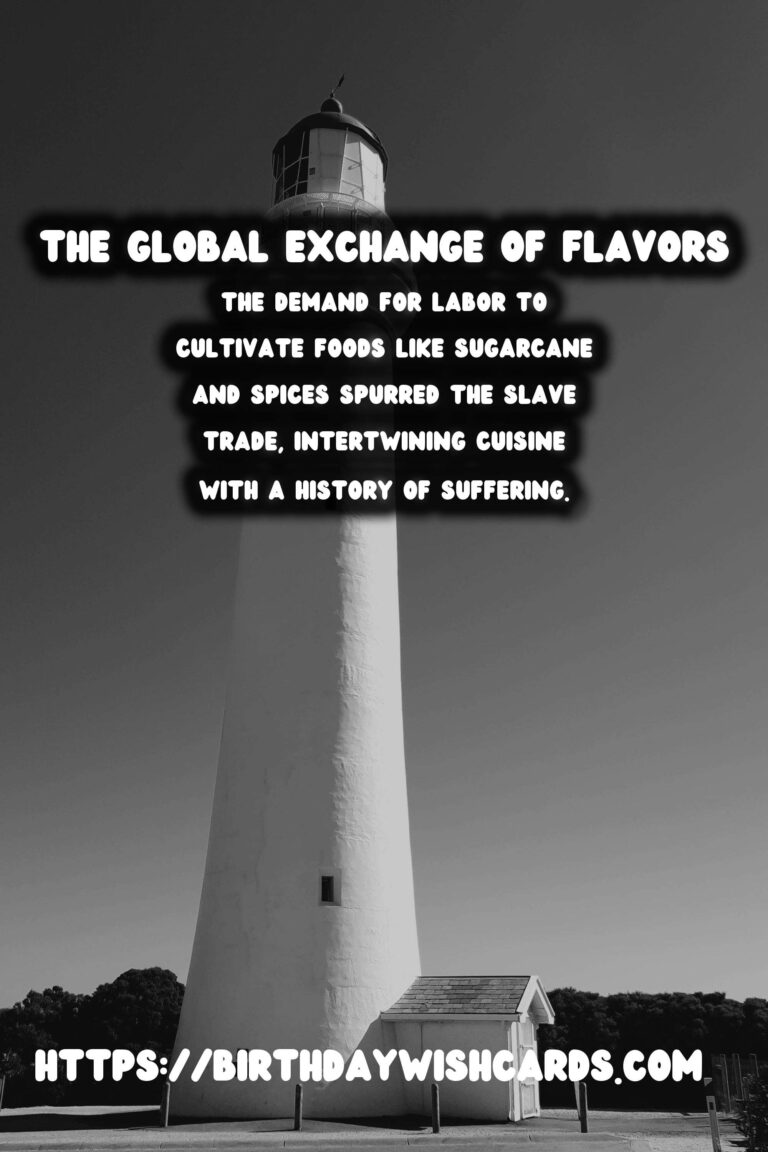
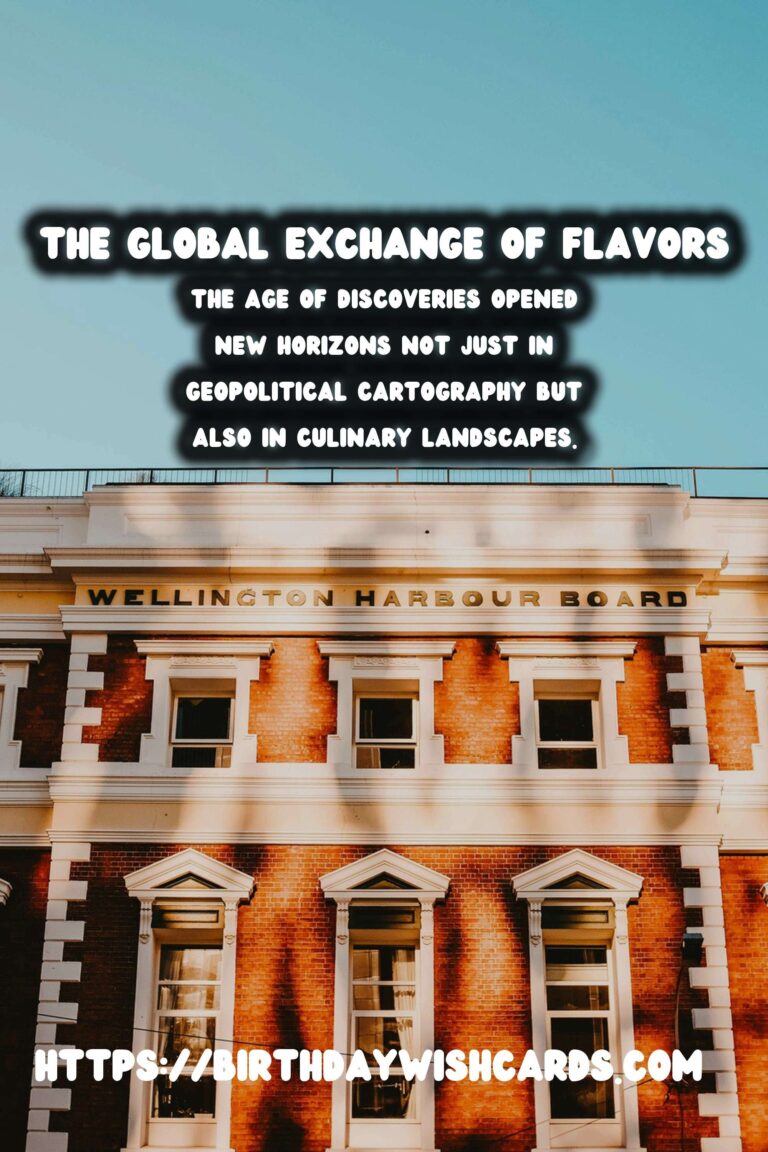
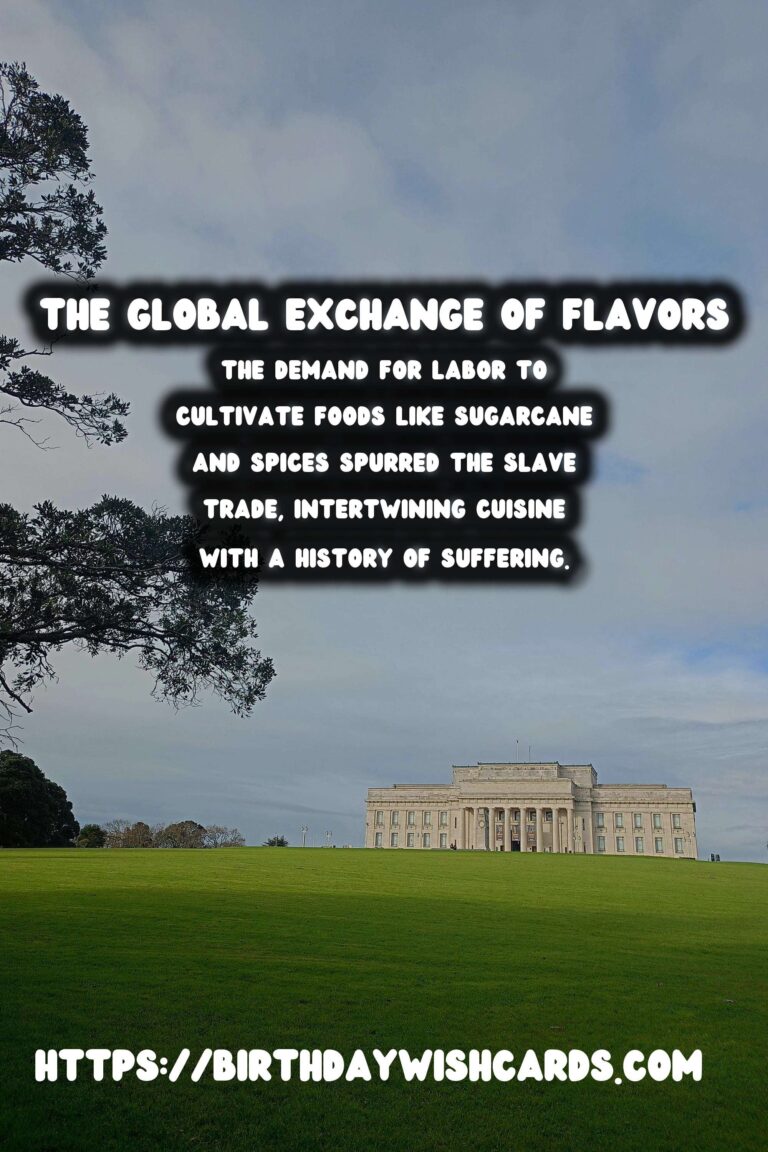
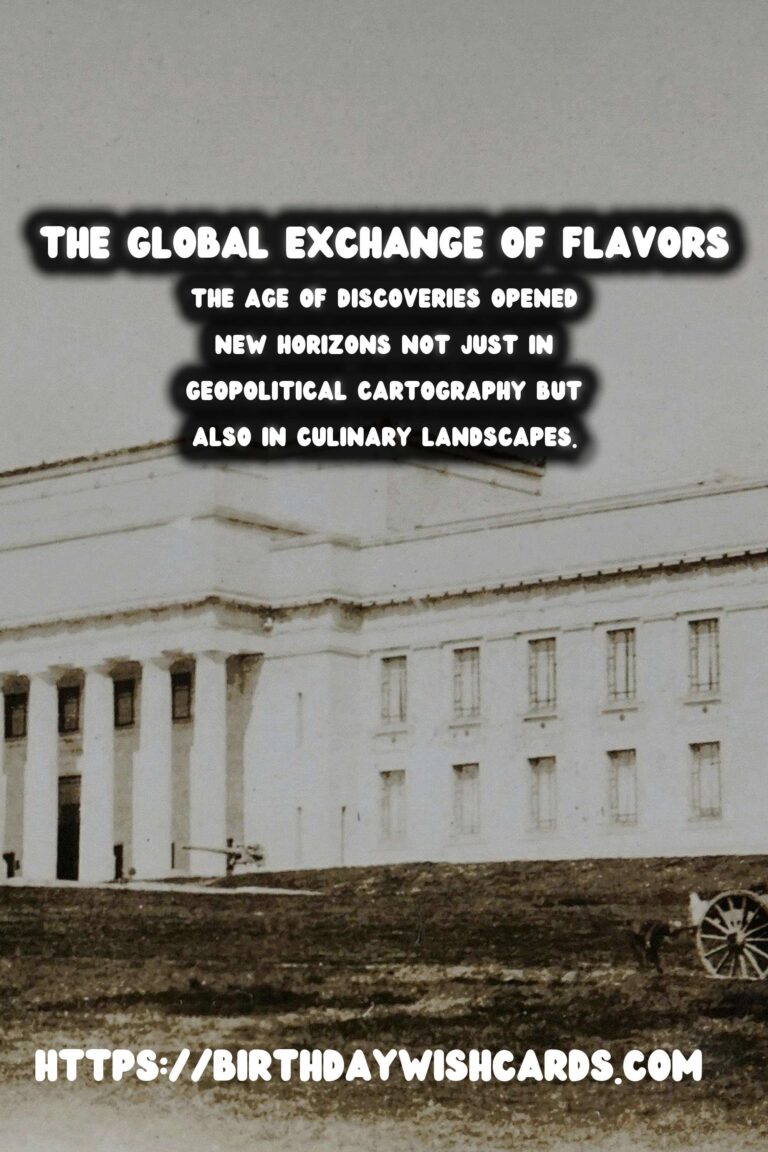

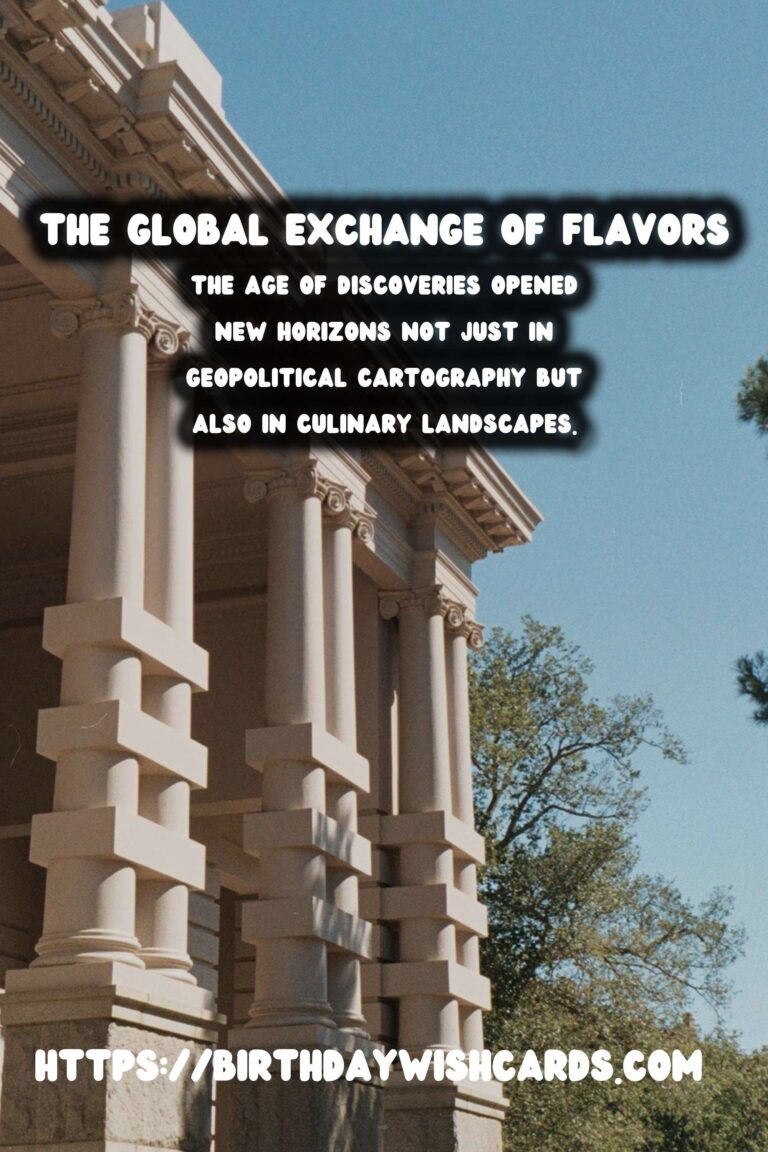
#CulinaryHistory #AgeOfDiscovery




